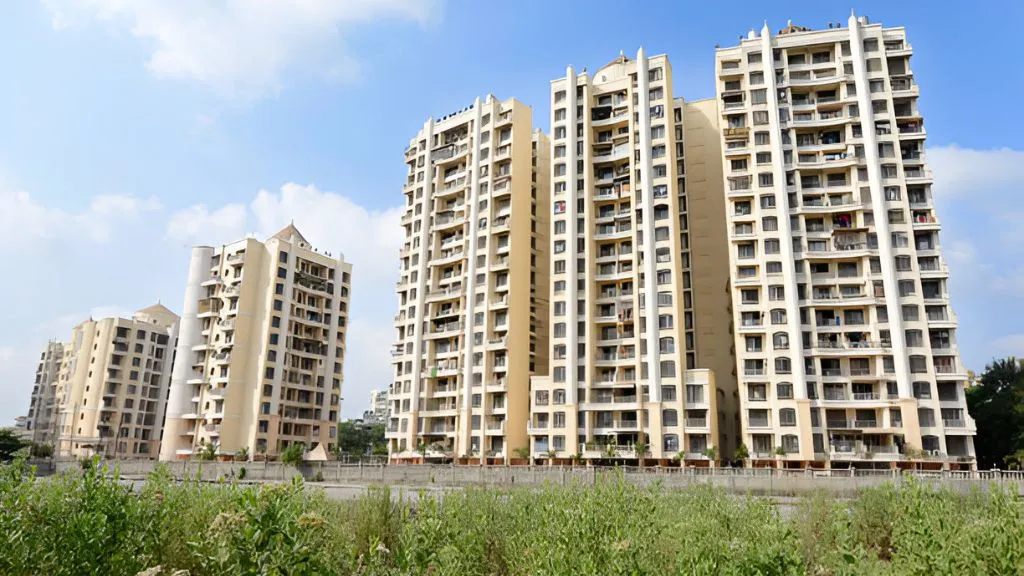
Let’s talk about a common real estate question: Condo vs Apartment? If you’ve been browsing listings and got confused by terms like condo and apartment, you’re in a good place. Is a condo just a fancy apartment? Is an apartment just a simpler version of a condo? And the big question—what’s the most suitable for you?
Before you start tossing coins, let’s sort through it together in a straightforward way. To clarify “What is the difference between a condo and an apartment?”, we have noted down the differences to make it clear for you.
What is the Difference Between a Condo & an Apartment?
Think of it like this: If an apartment and a condo were siblings, the apartment would be the one renting their clothes while the condo owns their wardrobe.
What Is A Condo?

A condo (short for condominium) is a unit owned by someone within a bigger building or community. Each unit has a different owner, but everyone shares common spaces like hallways, pools, or gyms. It’s like having a piece of a big pie—you own your part but still have to get along with the other pie lovers.
What Is An Apartment?

An apartment, on the other hand, is usually part of a complex where all the units belong to one landlord or property management. If you rent an apartment, you deal with them instead of an individual owner. It’s kind of living in a hotel, long-term—management handles things, and you just pay rent.
Sounds easy, right? But hold on, there’s more.
Ownership: Who’s in Charge Here?
The main difference between a condo and an apartment is who owns it.
When you buy a condo, you become a homeowner. Congrats! But that also means you’ll have a mortgage, property taxes, and an HOA (Homeowners Association) to consider. You can make your place your own with your choice of decor and renovations—just remember to follow the HOA’s rules. Thinking about painting your walls neon green? Sure, go ahead! Just make sure your neighbors won’t freak out first.
In an apartment, you’re renting from a landlord. So, no mortgage or HOA fees, but it also means you can’t make changes to your space. Want to hang something on the wall? You’d better be ready for a security deposit deduction.
Maintenance & Repairs: Who Fixes the Leaky Faucet?
Imagine it’s 2 AM, and your kitchen sink is leaking, with water inching toward your coffee maker. If you live in an apartment, you just call maintenance, and they should send someone to handle it.
But in a condo, it’s all on you. You’re in charge, which means you might have to fix it yourself unless you want to hire a plumber, and that can get pricey. If your AC breaks down in the middle of summer, just hope your wallet doesn’t take too big of a hit.
Amenities & Perks: What to Expect?
Condos and apartments both can have cool features like pools, gyms, security, and dog parks. But there’s a big difference in how they’re run.
Condos are often more unique since each one is owned separately. You might find nice appliances, custom lighting, and different layouts. The downside? There are HOA fees to maintain the shared areas, like the pool and gym, and those can add up.
Apartments usually have more standard features. They might lack the personal touch, but the upside is that they’re managed by professionals. You don’t have to stress about repairs, maintenance, or lawn care—it’s all taken care of.
Costs: Which One Is Easier on Your Wallet?
Let’s break it down.
Buying a condo comes with a mortgage, property taxes, and HOA fees. It’s a commitment, but it can be worth it if you plan on staying for a while and want to build some equity.
On the other hand, renting an apartment gives you more freedom. You just pay rent, maybe some utilities, and a deposit, without the long-term costs of ownership.
So, if you’re not ready to settle down (or if you don’t want to deal with plumbing issues), renting an apartment might be the way to go.
Freedom & Flexibility: Who Wins?
If you like to move around a lot, apartments are great. The lease terms are usually pretty flexible, so when you’re ready to leave, you can just pack your stuff and go.
Condos, on the other hand, can be a bit of a hassle. Selling a condo takes longer than just wrapping up a lease. But if you’re looking to settle down for a few years, a condo can offer you some stability and might increase in value over time.
Difference Between Condo and Apartment: Key Differences Every Buyer Should Know!
| Feature | Condo | Apartment |
| Ownership | Owned by individuals, rented out privately | Owned by property management, leased to tenants |
| Maintenance | The owner is responsible for unit repairs | Property management handles the maintenance |
| Amenities | More luxurious, unique features, HOA-managed | Standardized, varies by complex |
| Customization | More freedom to renovate and personalize | Limited customization due to leasing rules |
| Fees | HOA fees may apply | Fixed rent with possible extra charges |
| Flexibility | Long-term commitment builds equity | Short-term, easier to move out |
| Cost | Can be more expensive due to ownership & HOA | Generally more predictable costs |
Which One Should You Choose- Condominium vs Apartment?
Pick a Condo If:
- You want to own property and grow your investment.
- You’re okay with taking care of maintenance and repairs.
- You plan to stick around for a bit.
- You’re fine with paying HOA fees for better amenities and community upkeep.
Choose an Apartment If:
- You prefer flexibility—moving is easy with a lease.
- You don’t want the hassle of maintenance or repairs.
- You’re not ready to commit to a long-term investment.
- You prefer having a property manager to take care of everything.
Final Verdict: Condo vs. Apartment
It comes down to what you want. If you prefer stability and owning your space, a condo might be the way to go. But if you like flexibility and ease, then an apartment could be a better fit.
Think of it like food choices. A condo is like making a homemade meal—you have control over everything, but you also have to clean up afterward. An apartment is more like getting takeout—it’s convenient and simple, but you can’t customize it as much.






